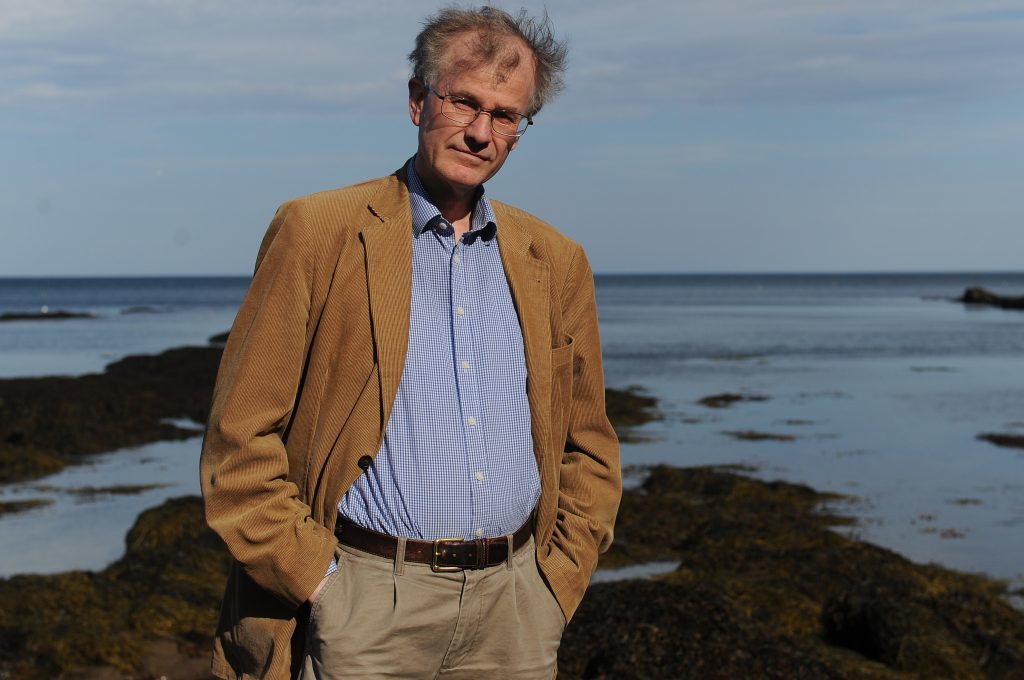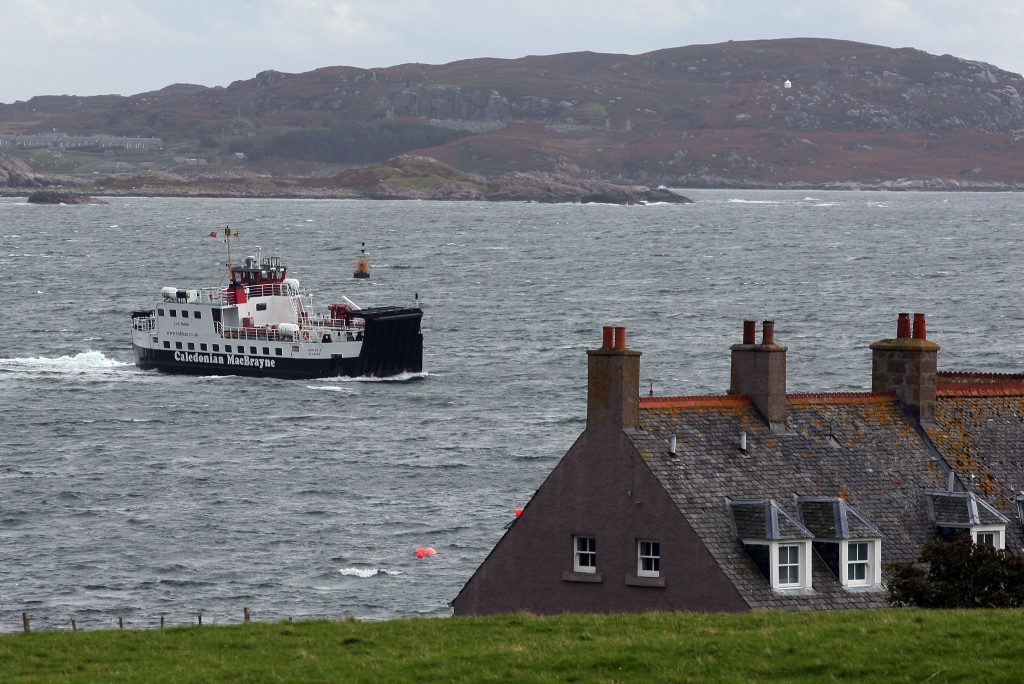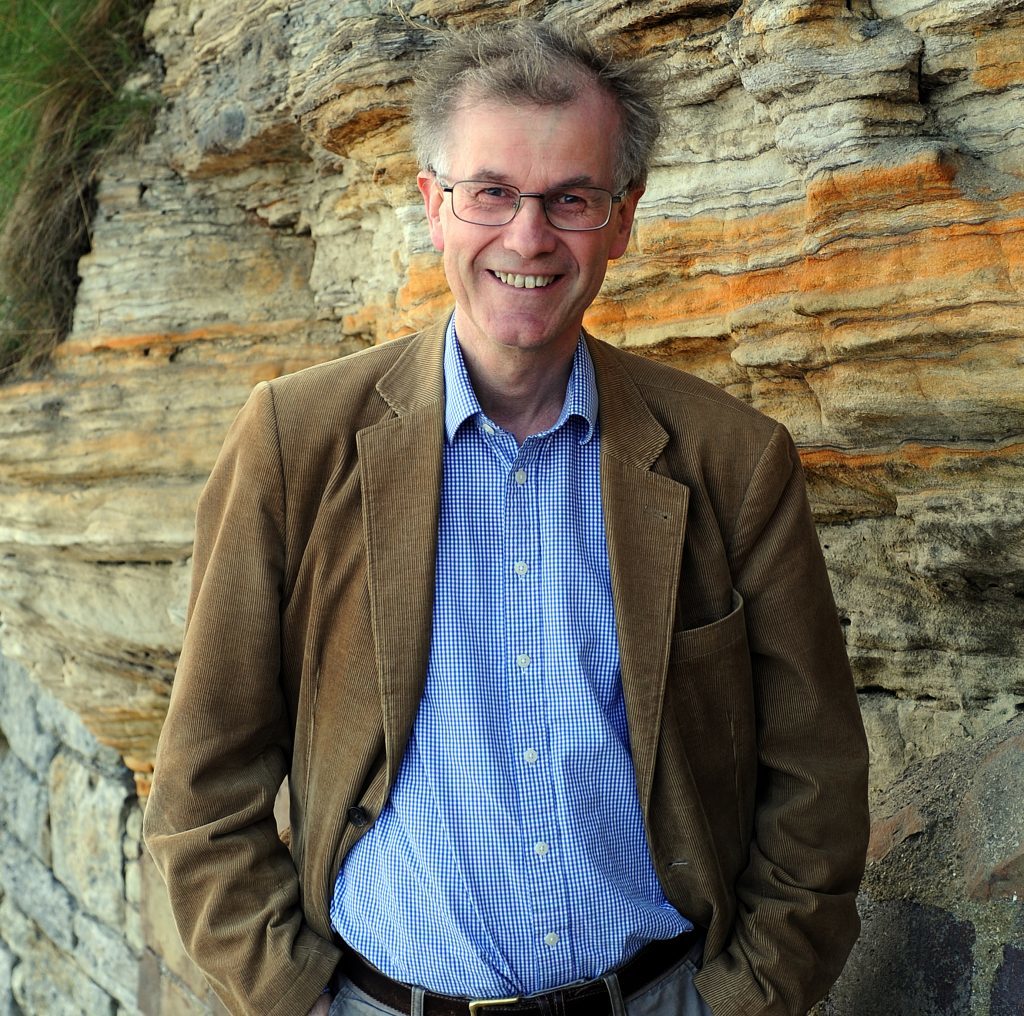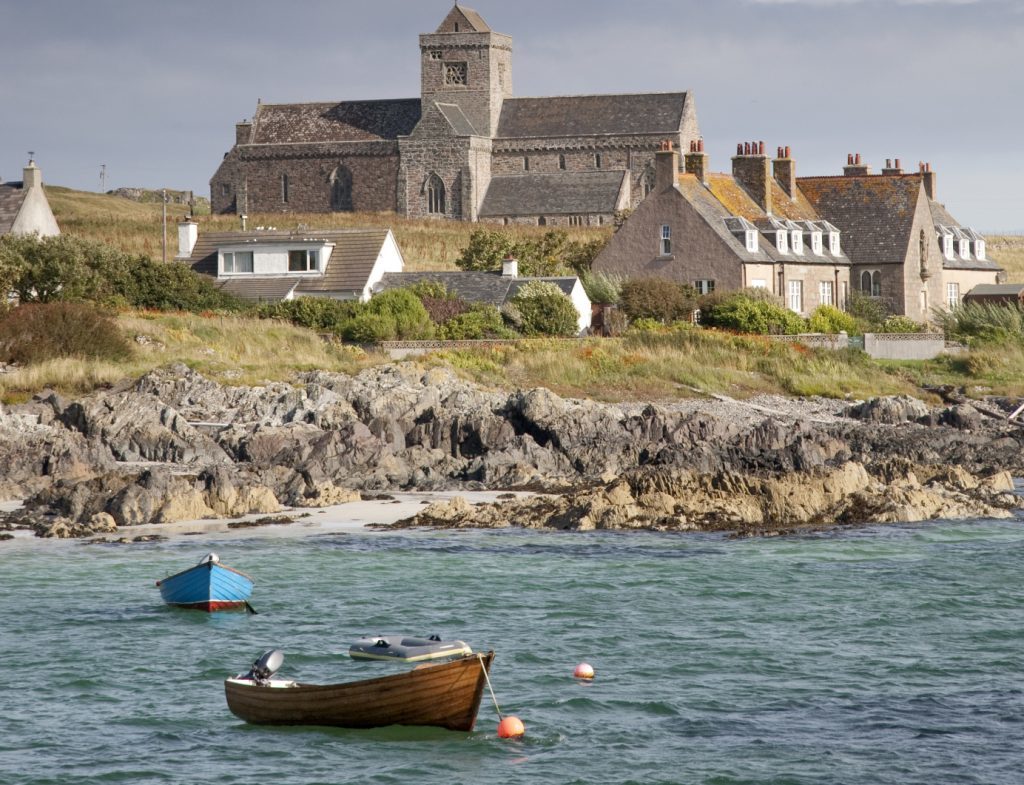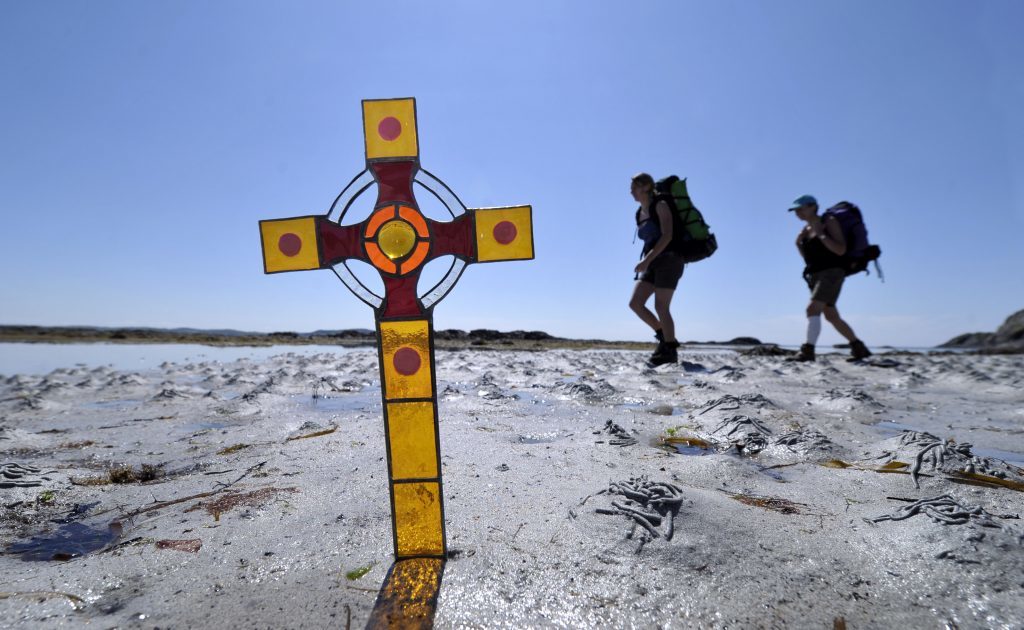The spiritual pull of Iona has influenced writers for centuries, and now its legacy is explored by St Andrews University Professor Robert Crawford in his latest publication – ‘The Book of Iona: An Anthology’. Michael Alexander met him.
As a regular visitor to Iona since his mid-teens, Professor Robert Crawford has a deep love for the physical beauty and spiritual ambiance of the island.
As a poet, he also has a particular interest in how it influenced the writings of early monks through to the later works of John Keats, Samuel Johnson, James Boswell, and even German composer Felix Mendelssohn.
But if there’s a governing theme that embodies the St Andrews University academic’s fascination with Iona, then it’s the island’s paradoxical embodiment of connectedness and remoteness.
It’s that relationship between spiritual centrality and geographical isolation that the Professor of Modern Scottish Literature explores in his new book ‘The Book of Iona: An Anthology’, which includes a number of new, specially commissioned writings.
“In the Middle Ages, to use an anachronism, it was a very networked place,” says Professor Crawford, 57, in an interview with The Courier at his office overlooking St Andrews Castle.
“Because it was an island you could get to it quickly from Ireland, you could get to it quickly from mainland Scotland. The sea was a kind of a road – a motorway if you like. I don’t think it was seen as a wild place in the Middle Ages by Columba and his monks.
“But the irony today it’s a relatively difficult place to get to. You can’t take your car onto the island unless you live on it. You have to sail from Oban to Mull on a ferry. Then you’ve got to go across the whole of Mull to get another ferry over to Iona. And you can take a bike but you have to leave your car. Your divesting things as you go there – sometimes even your troubles!” he laughs.
“You have to make an effort to get there. It’s probably more remote now than it was in the Middle Ages in a funny way – especially when you can’t get a mobile phone signal!”
Born in Bellshill, it was T.S Elliot who turned Professor Crawford on to poetry as a child. He didn’t necessarily understand what he was reading, he says, but he loved the sound of it.
He studied English at Glasgow University before going to Oxford where he wrote a doctorate on T.S. Elliot. Post-doctoral fellowships followed in Oxford and Glasgow, before St Andrews University offered him a permanent job in 1989.
He was 31-years-old, however, when he published his first book of poems a couple of years later.
And he admits that its title A Scottish Assembly was at least partly a political one inspired by his experiences of studying in England.
“The longer I lived in Oxford the more rabidly Scottish I started to feel – the more I thought Scotland should be an independent country,” he reveals. “In a possibly naïve way, I thought Scotland felt more democratic. It certainly felt more democratic than Oxford. I’d never really travelled so I’d never been around public school boys before in the flesh – I’d seen them on television and in books! – so it was all a bit of a shock for me going to Oxford. It was very good for me intellectually. But I did think it was a different culture and I still do to a fair extent.”
It was during his time studying in England that he became more interested in Scottish literature.
He began to feel more aware that Scottish cultural traditions are interestingly different and that culture shouldn’t be undervalued.
“Scotland is not a better country than other countries,” he reflects. “But we’re not a worse country either.
“I was over in Oslo recently and I couldn’t help reflect that Edinburgh seemed more like a capital city than Oslo!”
In the years since those early experiences , Robert, who lives in St Andrews with his wife and family, has written seven collections of poems in English and a number of smaller books in Scots. He published a biography on Burns in 2009 and is now half way through a biography of T.S. Elliot, a first volume of which came out last year.
But it was ‘The Book of St Andrews’ he produced in 2005 which ultimately inspired him to write ‘The Book of Iona’.
He adds: “About 10 years ago I wrote a book called Scotland’s Books – a book about the history of Scottish literature for Penguin. And I co-edited the Penguin book of Scottish Verse. So doing both of those made me aware of how many writings there were associated with Iona. And I quite like editing anthologies.
“So when I did the book of St Andrews in 2005, I actually mentioned to Hugh Andrew the publisher I’d quite like to do the Book of Iona. And as soon as I said that he said: ‘oh I’d publish that!’.
“The word Iona tends to sell as well. But for various reasons it’s taken me more than 10 years to get my act together to actually produce it. One reason it took so long was I was keen to get new writing commissioned as well. So it wasn’t just tried and tested writings about Iona from the romantic era or the 19th century or whatever. There was also new stuff there as well.”
- The Book of Iona, edited by Robert Crawford, is published by Polygon. RRP £14.99.
